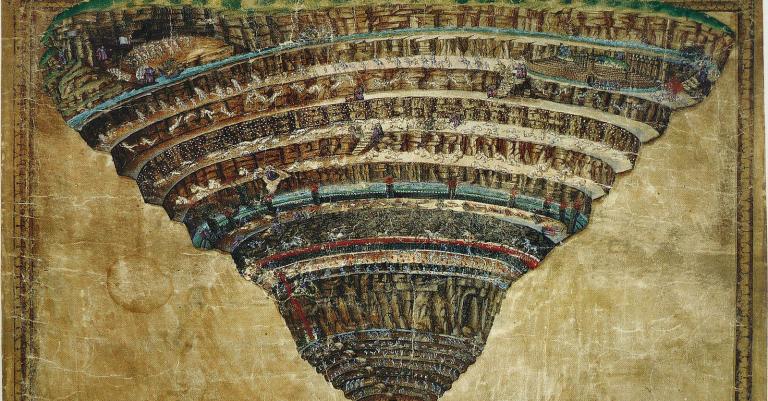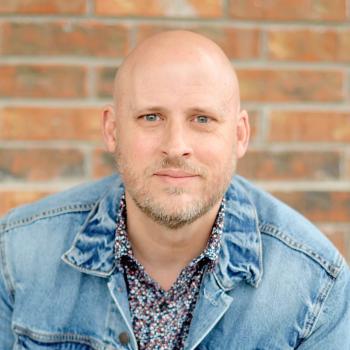I know strong Christians who had adult conversions because they came face to face with the reality of hell, in one way or another. Their level of commitment to the Christian faith after their unusual conversion baffles me.
i. recently, four people have passed who have impacted me
One is Billy Abraham. A second is part of my extended family. The third is part of my close-knit high school. Finally, many of us recognize the great leader Colin Powell.
The time in which I followed, or was personally engaged with, these people has drifted into seasons past. However, I cannot help but pause and remember what they have meant to me.
I won’t be ministering at any of the funerals, but I did post a short video about Prof. Abraham (4 min). Forgive me for rambling, but I was probably in shock after just hearing the news as many were.
I did not know Colin Powell at all, but I was always impressed by the leadership and career of this military hero and reluctant politician.
ii. an irresponsible eulogy
At this point in my ministry I would really have to add up the amount of funerals I’ve been involved with. In all of my years, I have heard plenty of excellent sermons on heaven, and hopefully have preached some. You always want to leave the gates of heaven cracked open, no matter how the deceased person lived. For one, you’re not the judge. Secondly, the hope of being near God, the kindness of God draws people to repentance (Romans 2.4).
However, in my readings lately, there has been a lot of doom and gloom material. If we all admit it, the Bible has plenty of references to punishment, both on earth, and in the afterworld. In fact Jesus preached on hell quite often.
“Jesus talks about hell more than he talks about heaven, and describes it more vividly. There’s no denying that Jesus knew, believed, and warned about the absolute reality of hell” (Leslie Schmucker, “The Uncomfortable Subject Jesus Addressed More than Anyone Else,” The Gospel Coalition, 05.11.17, CLICK HERE)
No one really wants to face everlasting punishment, much less stop to truly consider it.
What if someone preached an entire eulogy on hell, rather than heaven… in this day and time?
Would it be an irresponsible eulogy?
Why did Jesus find it so important to preach on the topic?
Did He literally want to scare the hell out of us?
Are we preaching the full Gospel if we fail to address hell?
iii. Dante’s Inferno
I’ve mentioned this reading group in previous posts and in social networks, so I won’t belabor the point here. I will say that in answer to the previous questions, it is sometimes good for me to consider hell.
Some may argue for the veracity of Dante’s Inferno. Others may argue that Dante is merely offering a fictional account. However, I don’t hear any arguments from Dante’s readers attempting to declare that hell itself is a fictional place.
Dante the poet writes about Dante the pilgrim who is commissioned by God to traverse through the multiple layers and torments of hell (as depicted by Botticelli).

The purpose of the pilgrimage, the purpose of this amazingly written prose, is to share the possible torments of hell with the living, not the damned. By considering the possibility of what troubles could await, sinners could be persuaded to turn from their ways. Duplicitous Christians could become convicted and turn from sin.
Remember, Jesus speaks in graphic detail about hell. If His descriptions of hell were ever made into a movie, it would most certainly be rated R, and one of the most graphic horror films of all time.
I know strong Christians who had adult conversions because they came face to face with the reality of hell, in one way or another. Their level of commitment to the Christian faith after their unusual conversion baffles me.
iv. doomsday prophets
No one likes the doomsday prophet. Everyone used to be a little bit uncomfortable by the street preacher. You know… the preacher standing on an orange crate on the corner in a metro, thundering out a sermon on the last days and impending judgment. And no one likes too many references to sin during Sunday morning sermons.
Perhaps times have changed for Christianity in the western world (western Europe and America). However, this callousness to the more difficult aspects of the prophetic word is as old as the hills.
Today, I read Hosea in one sitting. I encourage you to pick a book of the Bible and read through it in one sitting from time to time, no matter what your Scripture schedule says. Hosea is one of those books for me, one I enjoy reading all at once.
I can’t believe God makes him into a doomsday prophet. There are other doomsday prophets, but Hosea is told to embody his message like no other. I will let you refer to the book to see how he must illustrate the message with his life.
Hosea 9.7 is par for the course, a typical way people respond to doomsday prophets. “You are a fool! You have some type of mental disorder!”
Even worse, there are multiple times in the Gospel when religious leaders accuse John the Baptist and Jesus of being demon possessed!
With one swift stroke of the pen, Hosea disarms his critics. “Because of your great iniquity, your hostility is great” (verse 7.b).
v. on the responsibility to talk about hell
It would stand to reason that those who are living in the light, faithfully serving our Lord and Savior Jesus Christ, would not have a problem hearing messages on sin and hell from time to time. If anything, these messages cause the faithful to remain in a humble posture before God, and to renew their commitment to evangelism.
However, for those who are at odds with God (i.e. perhaps with hidden sin, perhaps living duplicitous lifestyles) messages on sin and hell can be quite disturbing.
Hosea says these people become hostile toward God, or mad at Him for dealing out justice (verse 7.b). Hosea is speaking to the people of God, not necessarily pagan sinners. Consequently, we should realize very similar people are in our congregations. There are parishioners who need to be taught and reminded about both heaven and hell. It is the Word of God for the people of God.
By being faithful to the whole story, as Hosea and poets like Dante so masterfully do, we are being faithful to the full Gospel of our Lord.
How are we to know what aspects of the Gospel will resonate with someone, so they will accept His grace?
Will you stand in the place of God, O preacher or teacher, refusing to share the whole Gospel at the expense of souls who would be turned to the truth?












